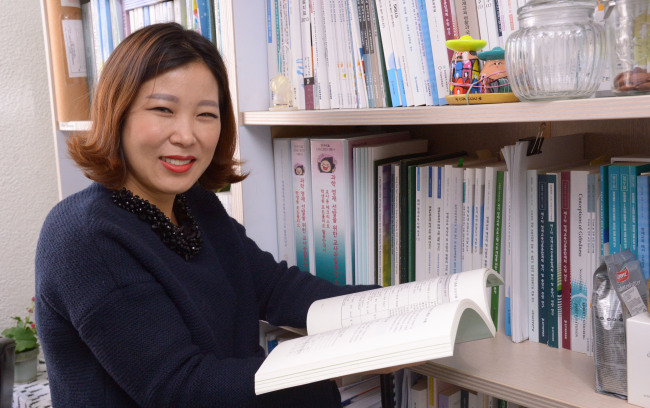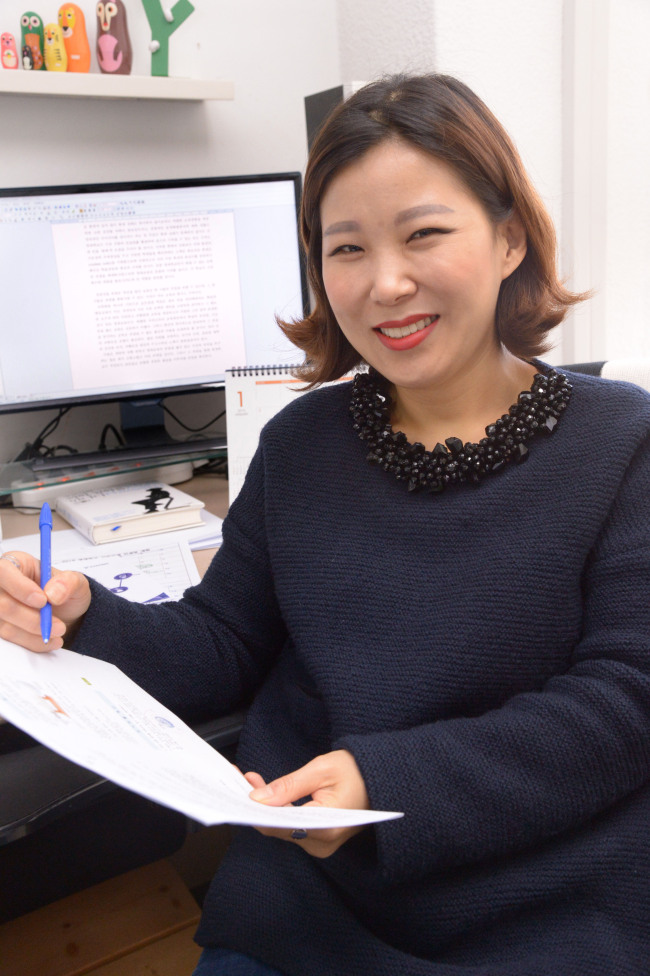[Weekender] ‘Elite education vital to help students reach their full potential’
By KH디지털1Published : Jan. 8, 2016 - 18:17
The debate over gifted education in Korea is generally played out between two sides: Opponents argue the special education program is tailored for the select few and undermines the principle of equal opportunity, while others see the programs as a chance to foster smart minds who can lead the nation.

An expert in gifted education agrees with the latter. Suh Ye-won, director of the state-run National Research Center for Gifted and Talented Education, says such education can achieve a true sense of equal opportunity by helping talented students reach their full potential.
“Though the previous form of gifted education is only for those students who excel academically, it is now about encouraging students with different talents to achieve their full potential. We are working to find those students and give them a chance to develop those talents,” Suh said in an interview with The Korea Herald.

“The purpose of gifted education is to give tailored education to different people. Giving the same education to students with different gifts is not an equal education. According to the Constitution Article 31 Clause 1, everyone is entitled to equal education according to their talent,” she said.
The director noted that the government’s involvement is the unique part of the nation’s gifted education.
In 2000, lawmakers enacted the Promotion Act for the Gifted and Talented Education, a law that paved way for the government to build schools and programs dedicated to gifted students.
The recruiting process for gifted students is another distinctive feature, Suh added. She noted that Korea’s gifted education involved tailored tests and teachers’ recommendations, different from those of other countries that use a cognitive test to determine the students’ advanced ability.
Education for gifted children is provided in three forms: gifted classes, gifted education centers and gifted schools. The first two are similar to extracurricular activities while the third is a full-time high school.
Suh also refuted criticisms that gifted schools fan public fervor over private education by compelling eager parents and students to undergo immense cramming to pass the schools’ admissions tests.
“There is no mathematical evidence to supports the claim that gifted schools contributed to the soaring amount of private education. In Korea, private education is for college admission, not for gifted education,” said Suh, arguing that the school’s admission test is too creative for the crammers to catch up with.
“The nation should focus more on gifted education’s positive aspects than the negative ones. It is absurd to abandon the education altogether out of fear that it might cater to a few free riders who could have received private education,” she said.
Among the benefits of gifted education, she highlighted that it could discover marginalized but talented students with little access to the advanced education. The government regulation mandates that 10 percent of the gifted schools’ seats must be filled by underprivileged students.
“There are many talented students with much potential who are deprived of opportunity for education. We need to find these kids and push them to reach their full potential,” she said.
By Yeo Jun-suk(jasonyeo@heraldcorp.com)


![[AtoZ into Korean mind] Humor in Korea: Navigating the line between what's funny and not](http://res.heraldm.com/phpwas/restmb_idxmake.php?idx=644&simg=/content/image/2024/04/22/20240422050642_0.jpg&u=)
![[Exclusive] Korean military set to ban iPhones over 'security' concerns](http://res.heraldm.com/phpwas/restmb_idxmake.php?idx=644&simg=/content/image/2024/04/23/20240423050599_0.jpg&u=20240423183955)



![[Graphic News] 77% of young Koreans still financially dependent](http://res.heraldm.com/phpwas/restmb_idxmake.php?idx=644&simg=/content/image/2024/04/22/20240422050762_0.gif&u=)
![[Herald Interview] Why Toss invited hackers to penetrate its system](http://res.heraldm.com/phpwas/restmb_idxmake.php?idx=644&simg=/content/image/2024/04/22/20240422050569_0.jpg&u=20240422150649)





![[Exclusive] Korean military to ban iPhones over security issues](http://res.heraldm.com/phpwas/restmb_idxmake.php?idx=652&simg=/content/image/2024/04/23/20240423050599_0.jpg&u=20240423183955)



![[Today’s K-pop] Ateez confirms US tour details](http://res.heraldm.com/phpwas/restmb_idxmake.php?idx=642&simg=/content/image/2024/04/23/20240423050700_0.jpg&u=)